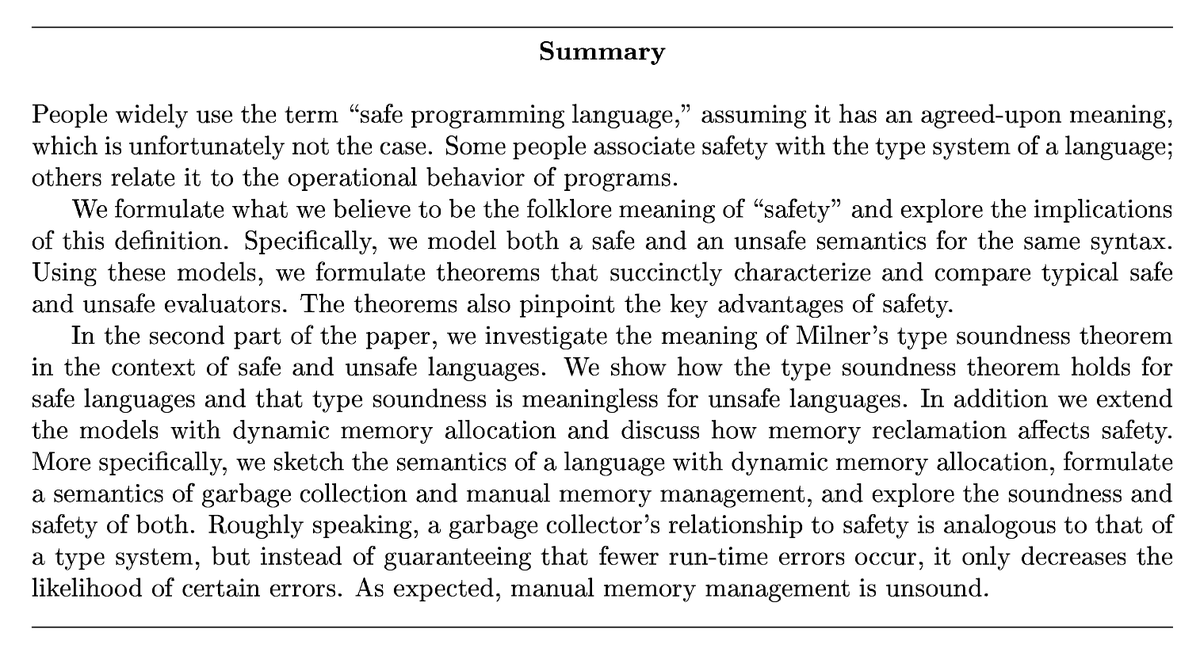To play the opposition for a moment, that is also a problem. In an era of hardware attacks, soundness may not quite hold. BUT, this is NOT a type-specific issue. The real fault is a failure of *safety*, not *soundness*. The same problem applies to, say, Ruby/Python. »
www2.ccs.neu.edu/racket/pubs/tr…
</sidebar> [thread resumes »]

This is related to what I feel is a common misunderstanding of what type soundness means. We explain this in our "Progressive Types" paper. Just read the intro.
cs.brown.edu/~sk/Publicatio…
</sidebar> [thread resumes »]
<sidebar>
Proving termination is of course impossible (Halting Problem). And I feel the HP is literally the thing that makes CS a truly distinct discipline from any other (eg, math). »
</sidebar> [thread»]
cs.brown.edu/courses/cs173/…






